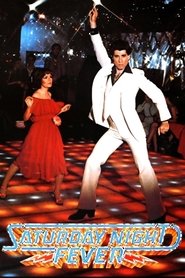Of course, no film should be required to make its protagonist likable or morally upright, but Tony passes a point of no return after the dance competition for this critic. […] Much of what happens after the competition is what derails Saturday Night Fever. Tony attempts to force himself on Stephanie in the back seat of Bobby’s car, and when she fights her way out of it, he attempts to reclaim Annette, who has since taken speed and directed her affections at one of Tony’s friends. While the group drives around the city, Tony stews about the competition and Stephanie’s rejection, saying nothing as his friends rape a pleading Annette in the back seat. Soon, they stop at the Verrazzano-Narrows Bridge—their favorite spot to perform daredevil climbing stunts and shout “Fuck you!” at their oppressive world. Tony turns to the rattled Annette accusingly and asks, “Proud of yourself now?” before deciding she’s a “cunt” for getting raped. […] Alas, the film never deals with Annette’s rape because it’s too eager to get to Bobby’s death, who, depressed that a girl he got pregnant refuses to get an abortion, self-destructively walks on the bridge and falls. Annette shields herself from the sight in one of her rapist’s arms, ignoring that she was sexually assaulted twice in the back seat moments before. In his Great Movies essay, Roger Ebert rationalized the scene: “Of course, at that time, in that milieu, perhaps it wasn’t considered rape, but only an energetic form of courtship.” Annette’s cries from the back seat suggest otherwise. […] The last fifteen minutes, […] for many viewers, have been repressed like a trauma, appropriately enough.Like disco, the flamboyant visual style distracts from the story’s more grounded and realistic aspects. Although the film deserves comparisons to Mean Streets for its portrait of the gritty street life in New York, Saturday Night Fever applies an empty Hollywood gloss to the proceedings that attempts to neutralize its thornier details. Too often, the film derives its pleasures from surfaces and never tackles Tony’s behavior, aping the style of better, more authentic 1970s cinema with similar themes but a sheen actively designed […] to sell records—to give audiences a “fever” that would cause them to ignore or make excuses for everything else.
— Brian Eggert (Deep Focus Review)

